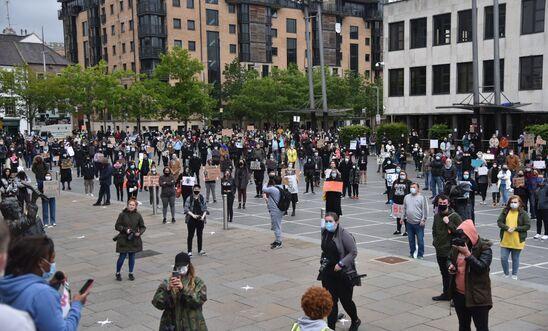
Press releases
Northern Ireland: PSNI stop and search figures show continued racial disparity

PSNI stop and search figures released today
23,650 people were stopped and searched/questioned – up 4% from previous year
People from minoritised ethnic communities almost twice as likely to be stopped and searched
More than 2,500 children stopped and searched
‘Every groundless stop and search can leave a negative impact on community relations’ - Patrick Corrigan
Amnesty International has raised concerns about the disproportionate use of stop and search by the Police Service of Northern Ireland (PSNI) on people from minoritised ethnic communities and on children.
In total, 23,650 people were stopped and searched in Northern Ireland by police in the year to the end of March 2023, figures published today show.
The data reveals how the police disproportionately stop and search minority ethnic people and children.
In the last 12 months (to the end of March this year) of 23,650 stops, people from Black, Asian and Minority Ethnic backgrounds accounted for 1,291 stops - 5.5% of the total - despite making up just 3.4% of the total population according to the 2021 census.
Irish Travellers were the ethnic group most disproportionately searched by the PSNI, accounting for 355 stops - 2.7% of the overall figure - despite making up just 0.1% of the Northern Ireland population.
Children aged between 13 to 17 years make up only 6% of the population but accounted for almost 11% of all stop and searches too.
Patrick Corrigan, Amnesty International UK’s Northern Ireland Director, said:
“If you are from a minoritised ethnic community, you are almost twice as likely to be stopped and searched by the PSNI than if you are from the white majority community. The police need to explain why, year after year, this continues to the case.
“Black and minority ethnic people in Northern Ireland tell us they feel over-policed, yet under-protected when they themselves are victims of racist hate crime.
“The use of stop and search on children is also worrying. There were more than 2,500 stops of children under these powers last year, including children aged 12 years and younger. Yet fewer than 3% of these searches resulted in arrest, suggesting the vast majority of stops were unnecessary.
“Every groundless stop and search can leave a long-lasting negative impact on community relations as well as on the individuals themselves.”